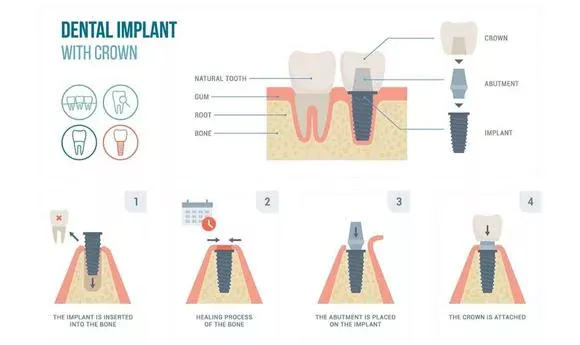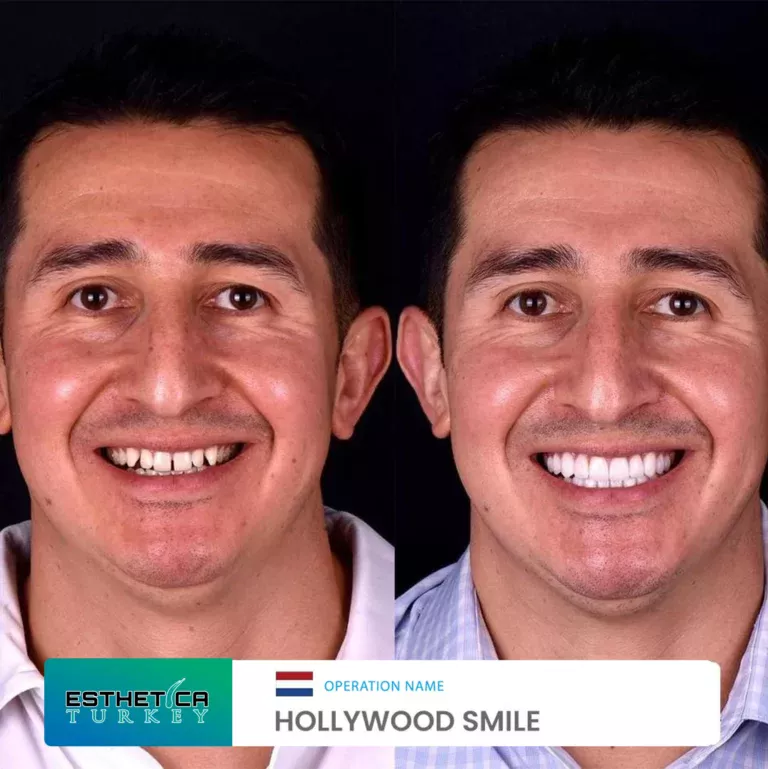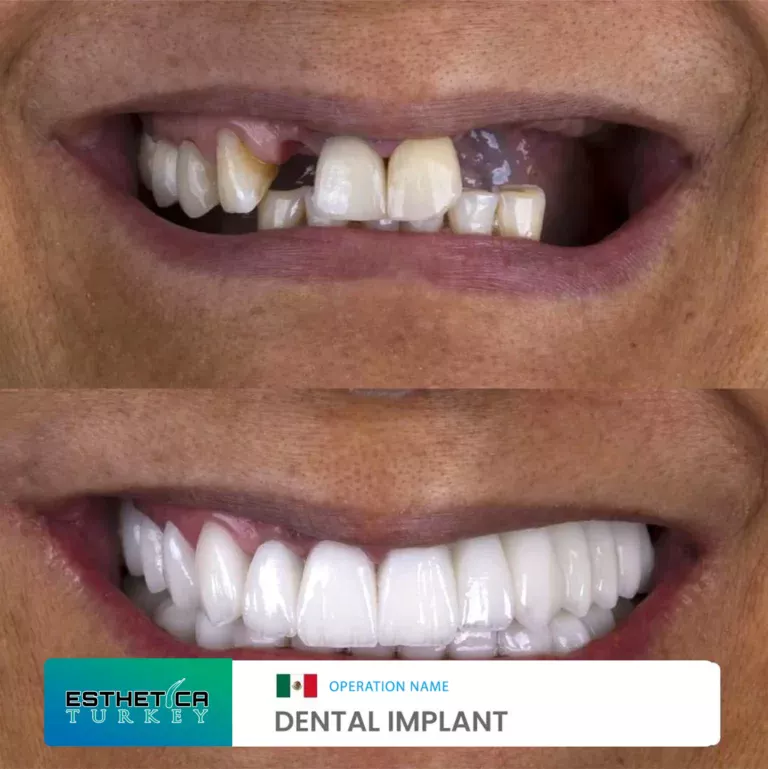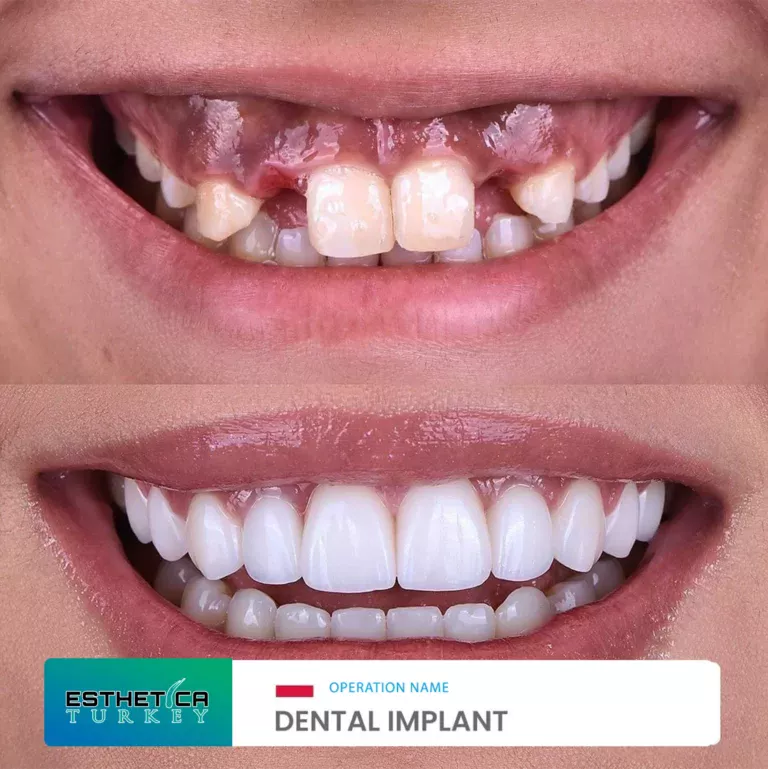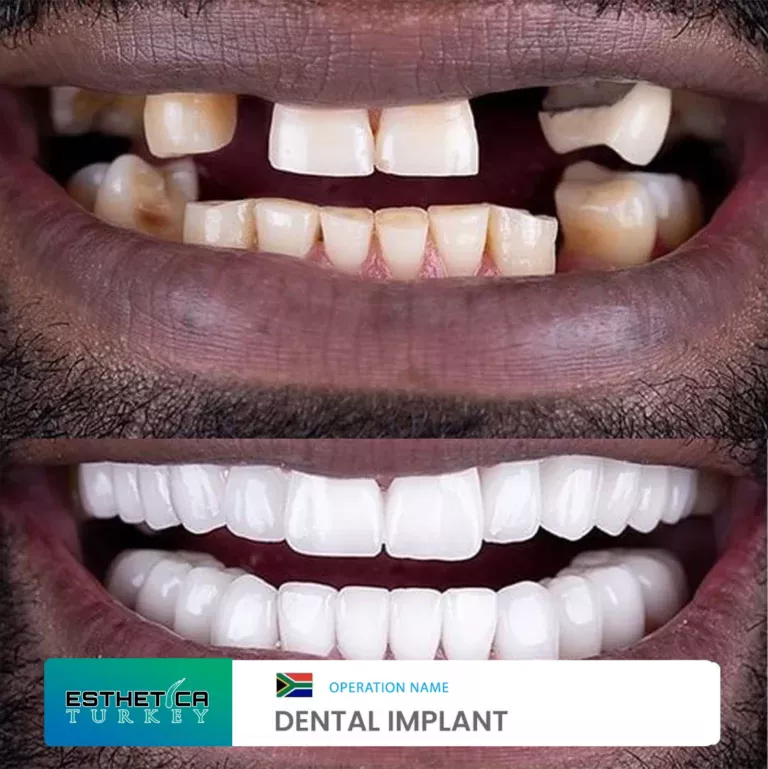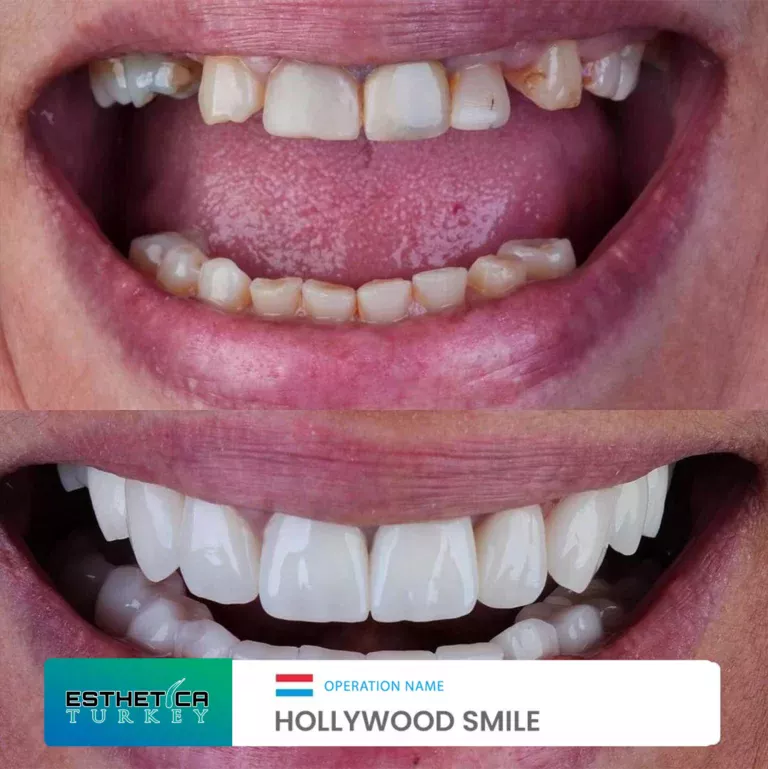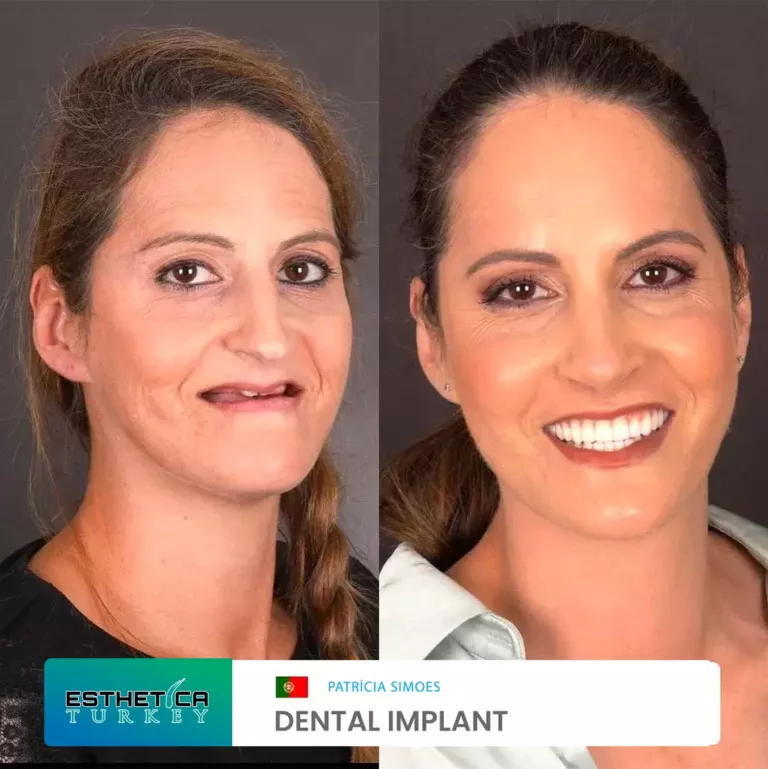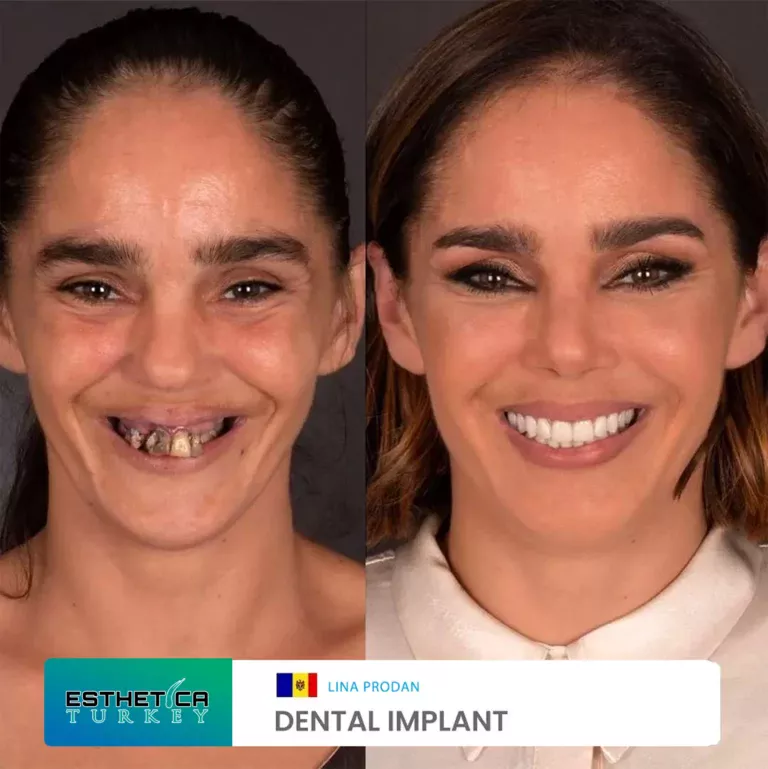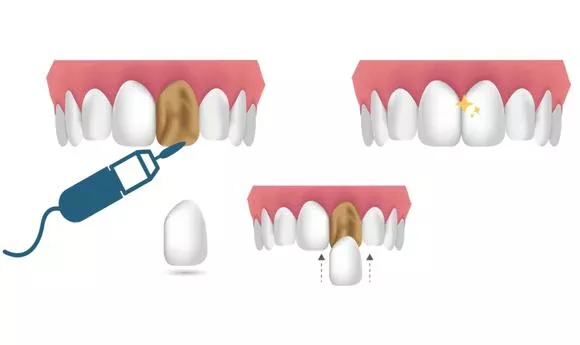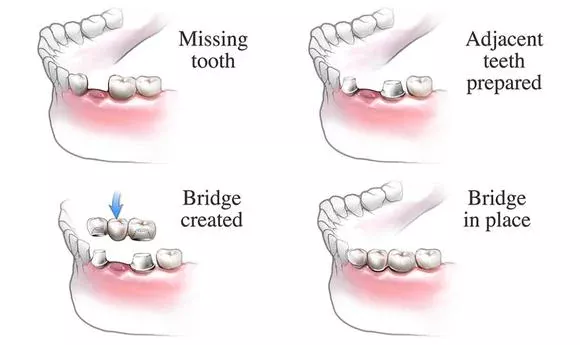Restoring Your Smile with Confidence
Welcome to our clinic’s website, where we provide valuable information about the transformative procedure of dental implants in Turkey. In this article, we will explore what dental implants entail, the different types available, and what patients can expect before, during, and after the operation. If you are considering dental implants as a solution for restoring your smile and oral functionality, read on to learn more.
What are Dental Implants?
Dental implants are a permanent and effective solution for replacing missing teeth. They consist of titanium posts that are surgically inserted into the jawbone to serve as artificial tooth roots. These posts provide a strong foundation for the attachment of custom-made dental crowns, bridges, or dentures, resulting in natural-looking and functional replacement teeth.
Types of Dental Implants:
1. Endosteal Implants: Endosteal implants are the most common type of dental implants. They are inserted directly into the jawbone and provide excellent stability and support for single or multiple missing teeth. This type of implant is suitable for individuals with sufficient bone density and a healthy oral environment.
2. Subperiosteal Implants: Subperiosteal implants are an alternative option for individuals who have insufficient bone density or have experienced bone loss. Instead of being inserted into the jawbone, these implants are placed on or above the bone, beneath the gum tissue. They are ideal for patients who are unable to undergo bone grafting procedures.
Before the Operation:
Before undergoing a dental implant procedure, patients will have a comprehensive dental examination and consultation with an implant specialist. During this consultation, the specialist will evaluate the patient’s oral health, including the condition of the jawbone and surrounding teeth. X-rays and CT scans may be taken to assess the bone structure and determine the ideal implant placement.
During the Operation:
The dental implant procedure is typically performed under local anesthesia, ensuring patient comfort throughout the operation. The implant specialist will carefully place the titanium implant posts into the jawbone at predetermined locations. If necessary, bone grafting or sinus lift procedures may be performed to enhance bone support. After the implant placement, the gums are sutured, and a healing period begins.
After the Operation:
During the healing period, which can last several months, the dental implants integrate with the surrounding bone through a process called osseointegration. Patients may be provided with temporary restorations to maintain oral functionality and aesthetics. Once the implants have fully integrated, the custom-made dental crowns, bridges, or dentures are securely attached, providing a functional and natural-looking smile.
Dental implants in Turkey offer a reliable and long-lasting solution for individuals seeking to restore their smile and oral functionality. By understanding the procedure, the different types of dental implants available, and the pre- and post-operative care, patients can make informed decisions and embark on a journey towards a confident and healthy smile. Consult with our experienced implant specialists to discuss your specific case and receive personalized guidance throughout the process.

